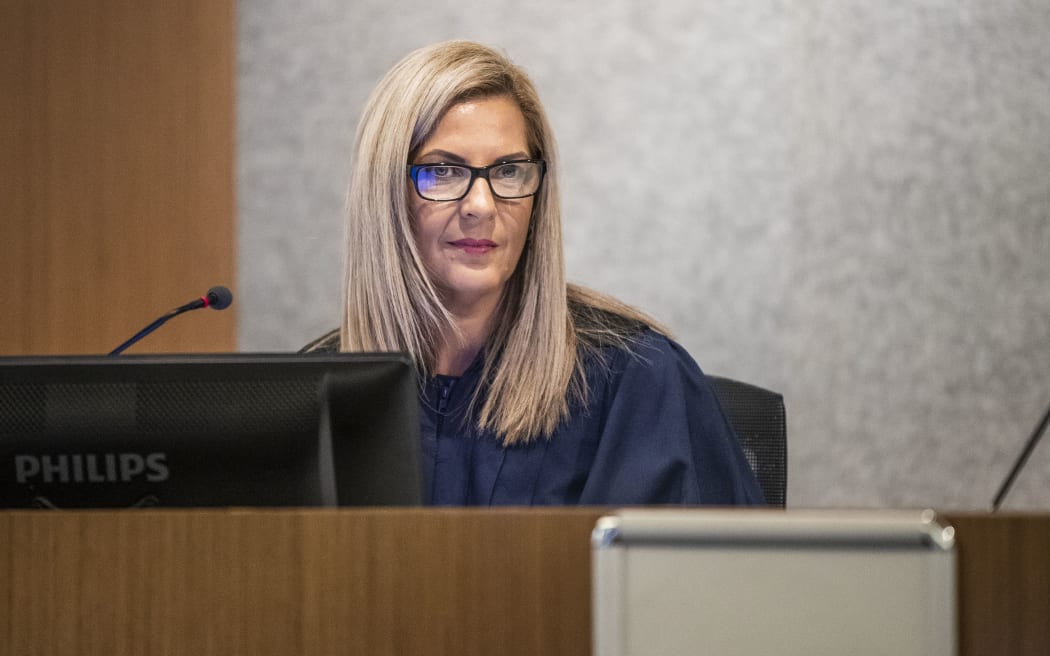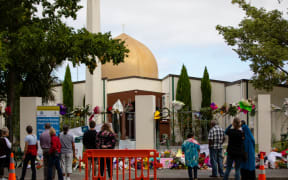Islamic groups and first responders are expected to make submissions to the coroner's scope hearing on the Christchurch terror attacks today.

Coroner Brigitte Windley says the victims, survivors and families will remain front and centre of the scope hearing. Photo: POOL / STUFF LTD
Family and survivors made their submissions yesterday, recounting experiences of the 2019 massacre which left 51 people dead.
Kamel Darwish's phone sent a heart emoji to his wife, made two calls and connected to many of his brother, Zuhair's calls - hours after police say he died.
Zuhair made 27 calls to his brother that day and said while the line connected, there was no conversation, though he could hear someone on the other end.
Zuhair tried desperately to alert police, as recounted by his lawyer, Anne Toohey.
"Mr Darwish went to the hospital, believing that his brother might be there. While there, he spoke to the police between 20 and 30 times.
"Every time he saw someone walk past, he spoke to them and said 'my brother's phone is being answered, I believe he is alive, I can't find him'."
But Zuhair was ignored and threatened with arrest, while his brother was left in the masjid overnight.
"My client went back to the Al Noor Mosque and told police that his brother had been answering the phone and could still be alive within."
"At that point, he was placed in the back of a police car and threatened with arrest if he did not calm down."
Trauma from the attack is ongoing for many and some believe the court processes are making it worse.
Nigel Hampton QC is representing some families, who, like Zuhair, want redacted evidence to be released.
"And they know [the evidence] will be distressing, but these people have been as traumatised as anyone could ever envisage and their view is that withholding the information is what will retraumatise them more," he said.
Another of the families' lawyers, Kathryn Dalziel, asked about the emergency response and whether it cost lives.
"Were there priorities or were there preferences made, was there triaging that was undertaken on the day that meant somebody was not assisted who could have survived but for that decision that was made on the day."
Dalziel said injured survivors had guns pointed at them by police when trying to relay critical information.
"They tried to speak to the police, to say that the terrorist had left. They tried to tell them and were yelled at with guns pointed at them, to sit down and shut up."
And how the terrorist managed to get through extensive gun licensing checks was also still on the minds of the families, Dalziel said.
"Some of our clients have firearms licences themselves and they know the scrutiny with which the police put them through the licensing process.
"They know that they were literally tipped upside down and shaken about to make sure they were not terrorists."
Hussein Al-Umari died in the massacre and his sister believes the terrorist may have had external help with the attack, as explained by lawyer Anne Toohey.
"The manner in which her brother died, suggests to her that he may have had training overseas."
Coroner Brigitte Windley said the victims, survivors and families would remain front and centre.
"The coming days will necessarily involve extensive discussion on the interpretation and application of legal provisions, law and principles, which may seem to have little to do with the events or the reason for this inquiry: the men, women and children who lost their lives as a result of the terror attacks on 15 March.
"I want to assure their whānau that those who lost their lives are, and will remain, at the very heart of this inquiry."
The hearing resumes at 10am today and is expected to finish tomorrow.



